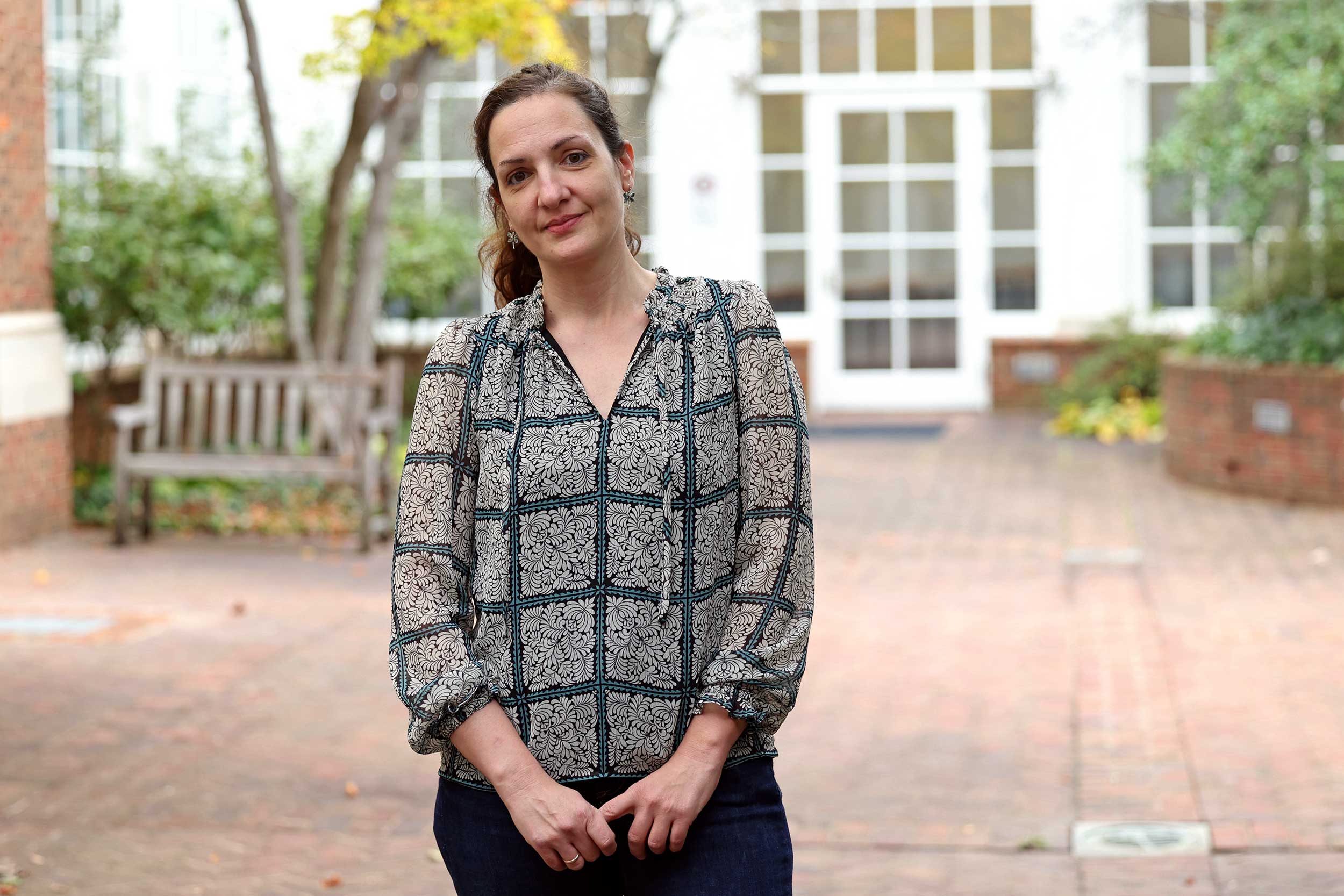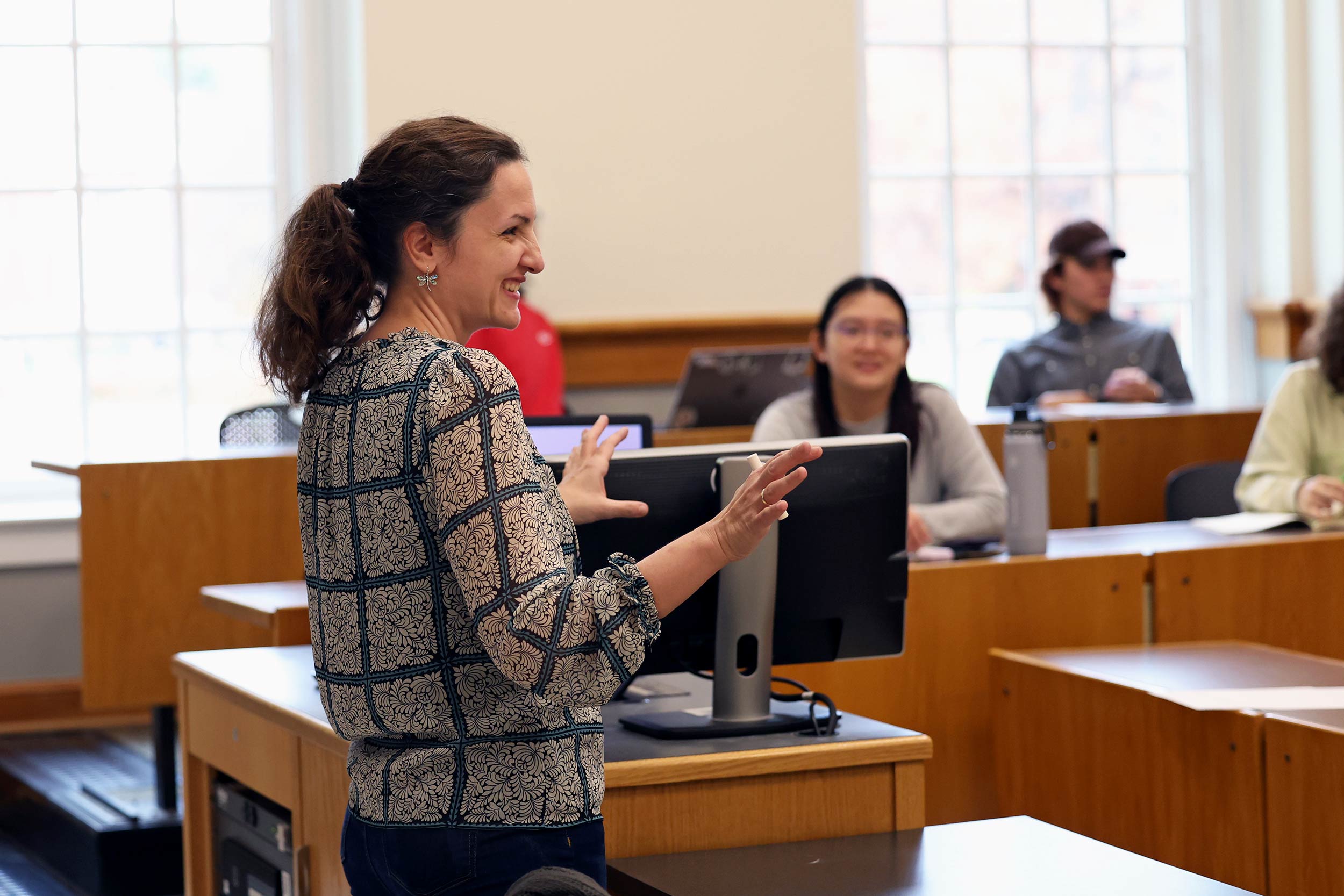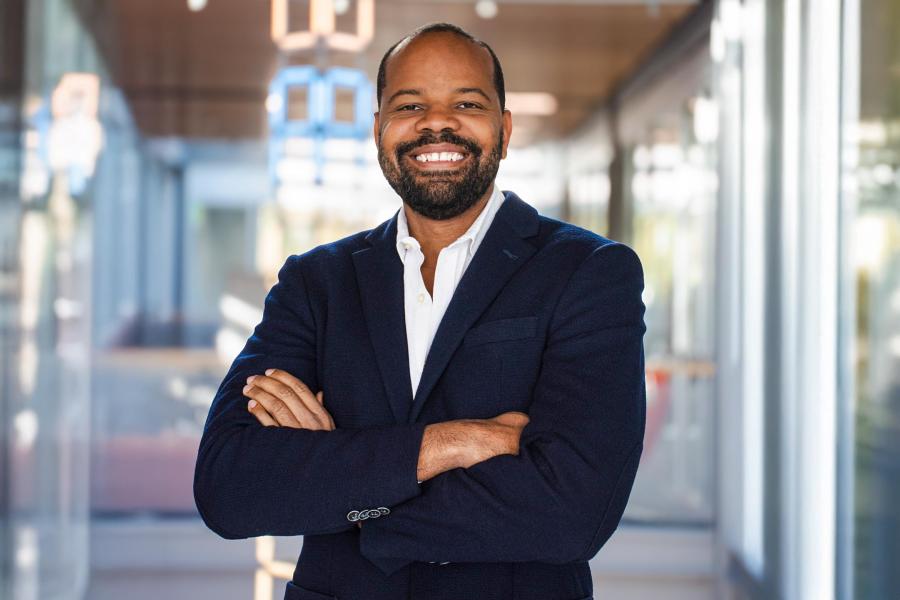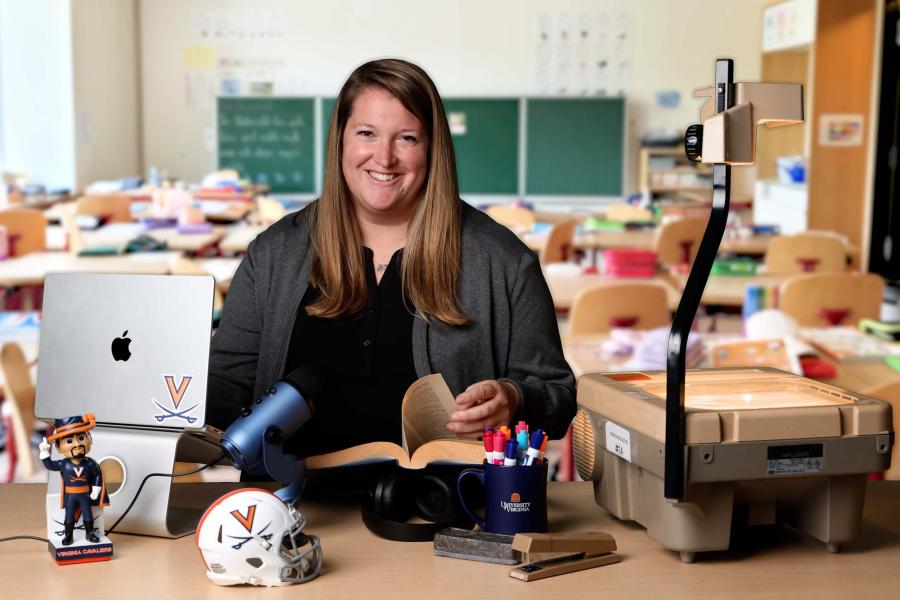Mandy Unterhalter was scared.
It was the first day of her basic real analysis course at the University of Virginia, a “notoriously difficult” subject that Unterhalter and her fellow math majors are required to take.
“This is going to be a hard class,” Unterhalter, now a fourth-year student, remembered thinking when she was taking the course in her third year at UVA.
Basic real analysis, Unterhalter said, is an area of study that proves everything you learned in calculus is true. It is a complicated subject within math, and students in the class are introduced to so many new symbols and logic that Unterhalter said it felt like “learning a new language.”
But she had heard good things about assistant math professor Evangelia Gazaki, who teaches the course – namely, that Unterhalter absolutely had to take a class with her before graduating.
Though the course was challenging, Gazaki quickly became Unterhalter’s favorite professor. She and her friends raced to sign up for linear algebra with her during their fourth years. Unterhalter said Gazaki has developed a cult following.
Gazaki began teaching at UVA in the fall of 2019, coming to Charlottesville from the University of Michigan, where she was a postdoctoral researcher. In short order, she’s made a name for herself at the University, winning an Alumni Board of Trustees Teaching Award. Math is often regarded as an impossibly difficult discipline, but Gazaki helps her students succeed.
“I always tell my students, ‘There’s nothing more to it than hard work,’” Gazaki said.
But Unterstalter said Gazaki stands out from other professors.
“On the first day, she was already setting class norms, which not everyone takes the time to do. She was telling us we had to ask questions, or we wouldn’t get the material,” Unterstalter said.
Gazaki said she knew she wanted to be a teacher since she was growing up in her home country of Greece. Her father was a high school teacher, which Gazaki said had an “enormous impact” on her. In Greece, unlike the United States, college students choose their major before they even start classes. Choosing math wasn’t a difficult decision for Gazaki.

Gazaki, originally from Greece, came to UVA by way of Ann Arbor, Michigan. (Photo by Matt Riley, University Communications)
“It’s just fascinating. It’s really amazing,” Gazaki said. “I think of it being closer to an art. This isn’t how non-mathematicians think about it, but it’s very creative.”
She didn’t know when she began her undergraduate studies that she would pursue a doctorate in math. That choice came at age 25, when she decided to move to the United States and earn a doctoral degree from the University of Chicago. After graduating, she moved to Ann Arbor to do postdoctoral research at the University of Michigan. Gazaki said the time away from her family in a stressful degree program was difficult, but they helped her through the rough patches.
“Living away from home is not an amazing decision, right? But my family was 100% on board with this, which meant a lot to me,” Gazaki said.
Gazaki began teaching at UVA one semester before the University shut down for the pandemic and went remote. She says teaching some of her first courses at UVA over Zoom was a challenge.
“The hardest part about the pandemic was having students not showing up,” she said. “I usually have a full classroom, so with the virtual class, I’d get about half attendance; the students kept their cameras off. It was just lonely.”










